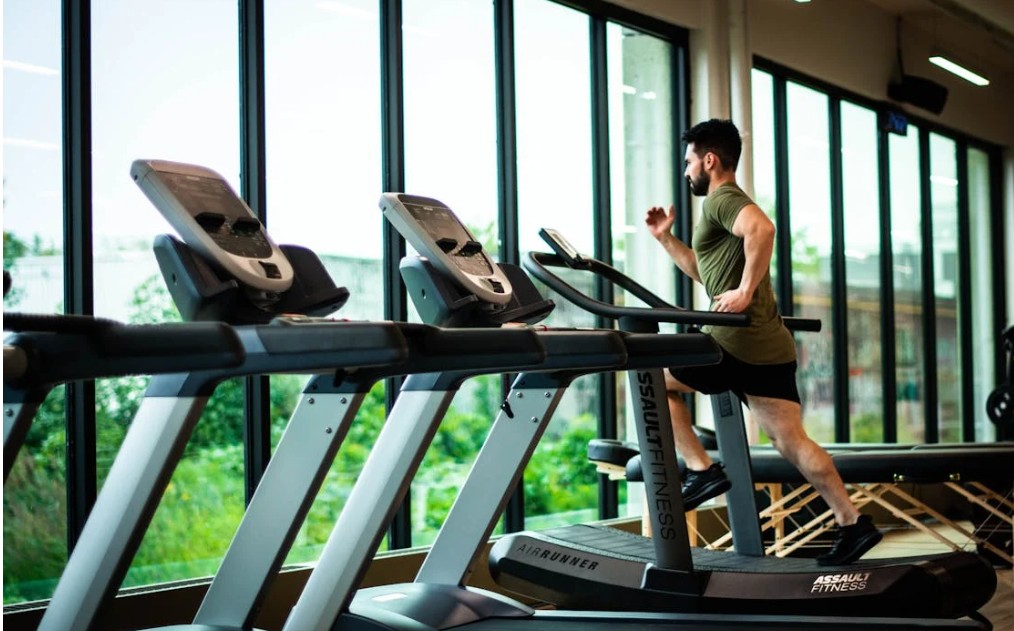Food and nutrition have a deep correlation with mental wellbeing, practitioners of holistic health stress that people must eat a broad range of nutrient-dense foods to facilitate an ample intake of minerals, vitamins and essential fatty acids. These include various colourful vegetables and fruits, nuts, seeds, whole grains, lean protein and healthy fats…writes Ashwani Vohra
Working professionals spend more than a third of their week at their workplaces. Hence, a healthy office environment is pivotal in promoting employee well-being. Among multiple benefits, a vibrant workplace environment can help companies maintain a healthier workforce. This positively impacts business outcomes, by curbing absenteeism, enhancing employee productivity and aiding better performance.
Interestingly, this can be easily achieved by a series of small yet significant changes that can create a big impact in boosting both the physical and mental well-being of employees and improving overall productivity.
In this context, some of the most impactful measures that could be undertaken are ergonomic workplace designs, which include the cafeteria, breakout areas and the role of nutrition in supporting employee well-being. Ergonomic workstations are crucial in preventing physical and mental strain for employees while working. Proper layouts that facilitate ease of periodic movement can help mitigate the negative impact of sedentary working lives. In the case of nutritional aspects, companies must provide daily access to healthy food and beverage options that play a key role in maintaining optimum health.
Healthy Food Choices: Need of the Hour
Healthy food choices and an inclusive dining offer play a critical role in ensuring the overall well-being of the employees. A recent consumer survey, Culinary Voices, conducted by Compass Group India noted that millennials typically struggle with the dilemma of balancing their taste and health preferences. This generation is more health-conscious, they strive to balance nutritional needs alongside their indulgence in delicious, flavourful foods.
Further insights come from Compass Group’s 2023 Global Eating at Work (GEAW) Survey, conducted worldwide. The survey reveals a shift in employee priorities, affected by the COVID-19 pandemic and the rising cost of living. Employees are now more aware of their needs and expectations from their employers. Food options at work have become a significant factor in attracting and retaining talent, particularly for Gen Z workers. 71% of employees with access to a staff restaurant report a more positive perception of their employer compared to only 62% without such options.
This survey also underscores the increasing demand for healthier choices across all age groups. Employees expect that the food offerings at the workplace should actively promote healthy eating, and balanced nutrition and must be underpinned by sustainability. The younger generations are leading the charge towards a plant-based future, with 63% of Gen Z workers advocating for more vegetarian and vegan options, compared to just 37% of Gen X and 30% of Baby Boomers.
The focus on healthy eating goes beyond just taste preferences. Employees are increasingly interested in a more holistic approach to their workplace meals. This includes a rise in protein consumption for sustained energy, opting for healthier grains like millet for added fibre and vitamins, and the availability of alternate sugars for those managing diabetes. Balanced meals with portion control and variety are also in demand, ensuring employees receive a complete range of macro and micronutrients to support their well-being.
Nutritious Foods to Stabilise Moods
Food and nutrition have a deep correlation with mental wellbeing, practitioners of holistic health stress that people must eat a broad range of nutrient-dense foods to facilitate an ample intake of minerals, vitamins and essential fatty acids. These include various colourful vegetables and fruits, nuts, seeds, whole grains, lean protein and healthy fats.
Ongoing research reveals how a healthy gut microbiome (diverse microorganisms in the digestive tract) is closely connected to mental health. Conversely, an imbalance in the gut microbiome is linked with anxiety, depression and allied mental health conditions. Accordingly, a balanced-nutritious diet is essential to nurture a healthy gut microbiome that boosts mental health and emotional balance.
Additionally, well-balanced meals with various nutrient-dense foods are necessary to maintain stable blood sugar levels and support mood stability. Foods high in added sugars and refined carbohydrates can cause a speedy spike in blood glucose levels, followed by sudden drops that trigger mood swings.
That is why maintaining stable blood sugar levels is crucial for emotional resilience. To achieve this, it is important to include complex carbohydrates, adequate protein, and fiber-rich foods in your diet. These foods help slow down glucose absorption and keep blood sugar levels stable, contributing to overall well-being.
Hydration: The Fuel for Peak Performance
Equally important to a nutritious meal is staying properly hydrated throughout the workday to ensure optimal performance. After all, research suggests that even a minor decrease in hydration can significantly impact productivity. Studies have shown that a mere 1% drop in hydration can lead to a 12% decline in productivity, while a 3% to 4% decrease can cause a productivity drop of between 25% and 50%. Considering that 75% of your brain is composed of water, it’s easy to understand why dehydration can hinder cognitive function and workplace performance.
Better hydration options for the employees are the need of the hour, water infused with fruits or herbs offers a refreshing, low-calorie alternative to sugary sodas. For those seeking a natural energy boost, herbal teas like green tea or peppermint provide a pick-me-up without the jitters associated with excess caffeine. Seasonal considerations also play a role; in warmer months chilled fruit-infused waters or iced teas can be a welcome respite, while hot beverages like cappuccino or masala tea might be more appealing during colder seasons. Furthermore, some companies are embracing regional preferences by offering traditional drinks like Kanji or Rasam, catering to employee diversity and fostering a sense of cultural inclusion.
Well thought Workplace Café and offer – A game changer in promoting employee wellbeing
Workplace Café and breakout spaces play a very important role in promoting and ensuring the overall well-being of employees. A well-designed cafeteria fosters a sense of community bonding by encouraging greater collaboration between employees. The right food and beverage offer can enable informal discussions over meals sparking big ideas or themed lunches and team celebrations that give a fillip to in-house networking and social connections. Cafeterias deliver an array of benefits that boost the physical and emotional well-being of the staff. This is particularly important for younger generations, with 81% of Gen Z reporting that taking a proper lunch break, which often involves socialising over food, makes them more productive upon returning to work, compared to 73% of Baby Boomers, as per the GEAW survey.
Coffee or lunch breaks in the cafeteria encourage employees from different departments to exchange thoughts, increasing creativity and teamwork. Moreover, allowing people to relax during short breaks helps them de-stress, covertly enhancing their job satisfaction and mental well-being levels.
Recognising the importance of breaks, companies are creating dedicated breakout areas that encourage employees to step away from their desks, refuel, and connect. Ultimately, healthy food options combined with designated break areas contribute to a healthier workplace environment—not just physically, but mentally and socially as well.
In a nutshell, the above elements emphasise how employers can prioritise employee health and well-being via ergonomic designs, cool cafeterias and well-balanced food choices to create a healthier work environment.
ALSO READ-Bite sized deliciousness: Laddooh by Chef Sugandha Saxena













